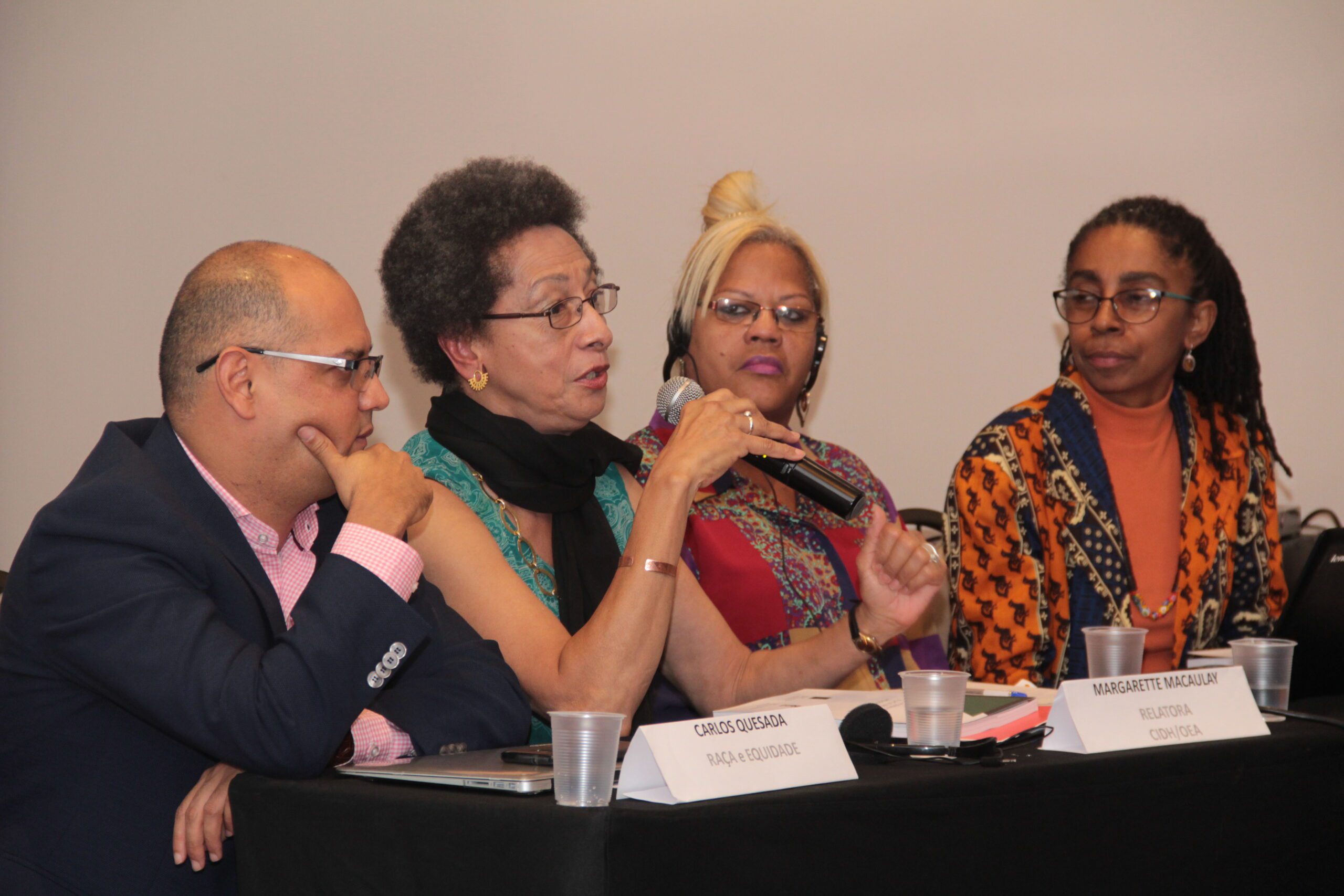Commissioner Margarette May Macaulay, Rapporteur on the Rights of Women and Rapporteur on the Rights of Afro-descendants and against Racial Discrimination, Visits Brazil with the Support of the Institute on Race, Equality and Human Rights
Washington, D.C., October 17, 2016. Recognizing the important work that the Inter-American Commission of Human Rights (IACHR) carries out through its various rapporteurships, the Institute on Race, Equality and Human Rights sponsored a promotional visit to Brazil this September 27-30 for Commissioner Margarette May Macaulay, Rapporteur on the Rights of Women and Rapporteur on the […]

Washington, D.C., October 17, 2016. Recognizing the important work that the Inter-American Commission of Human Rights (IACHR) carries out through its various rapporteurships, the Institute on Race, Equality and Human Rights sponsored a promotional visit to Brazil this September 27-30 for Commissioner Margarette May Macaulay, Rapporteur on the Rights of Women and Rapporteur on the Rights of Afrodescendants and against Racial Discrimination. The purpose of the visit was to collect information regarding the situation of violence faced by Afro-Brazilian women and to promote the work of the both rapporteurships.
The visit was made possible in coordination with our Brazilian partners: Geledes – Instituto da Mulher Negra, from São Paulo; Criola, from Rio de Janeiro; as well as the Articulação de Organizações de Mulheres Negras do Brasil (AMNB) through the Odara Instituto da Mulher Negra, from Salvador.
During the visit, Commissioner Macaulay received numerous testimonies from different sectors of Afro-Brazilian society. The events included a broad participation of Afro-Brazilian women, many of whom told of violations of their human rights and of the ineffective response by government institutions to these violations. In addition, Commissioner Macaulay received information on the increase in deaths of young Afro-Brazilians at the hands of police and how these violent acts have affected the mothers of the victims and the Afro-Brazilian community as a whole.
Transgender Afro-Brazilian women also had an opportunity to participate the sessions and to inform the Commissioner of the high levels of exclusion and invisibility their community faces in Brazil. The events also served as an opportunity to hear testimony from victims who have received threats for practicing African-derived religions.
The testimonies given by Afro-Brazilian women were often gut-wrenching, especially accounts of police brutality towards Afro-Brazilian youth and injustices that occur in the Brazilian penal system. Mothers of youth killed by the police expressed their view that “we believe they are killing our children one by one.”
Regarding the violence suffered by Afro-Brazilian women, Commissioner Macaulay said, “Over the years I have heard numerous stories of violence against women, but those that were told today have been terrible. Not only should the police be trained to attend to victims of domestic and sexual violence, but so should every member of the judicial system.”
The Rapporteur urged the representatives of civil society organizations to send the Commission detailed information on the situation of women and Afro-descendant communities in Brazil.
During the trip, Commissioner Macaulay was given technical support by other members of the travelling delegation: Ana M. Gonzalez, attorney for the Inter-American Commission, Carlos Quesada, the Institute’s Executive Director, and Elvia Duque, its Latin American Program Officer.

